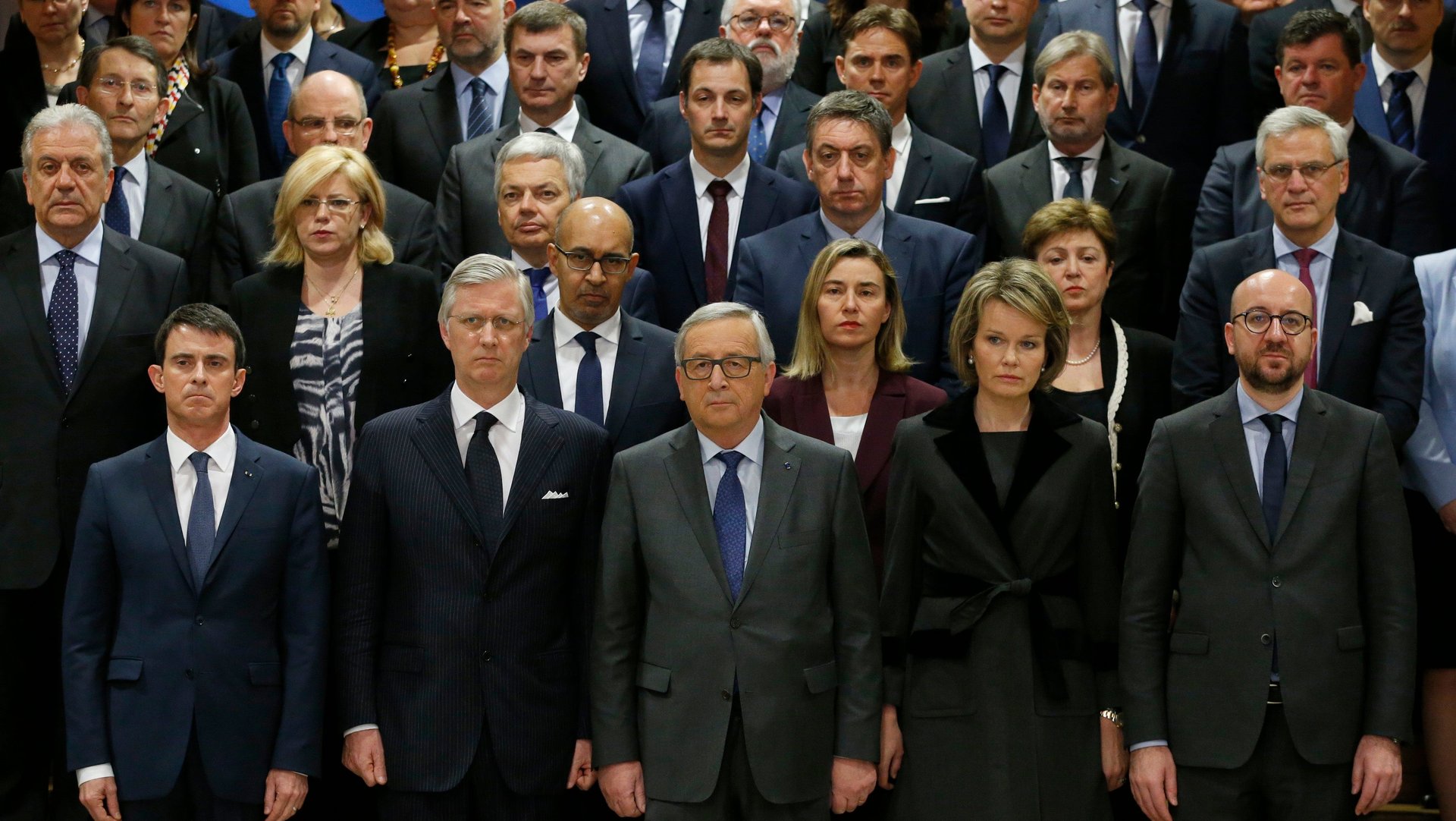ISIL’s barbarity must unite Europe, not divide it
As Belgium comes to terms with being the most recent target of terrorist attacks in Europe, many are wondering about the relevance of the European Union (EU) and its capacity to manage and coordinate the defense and welfare of its member states’ citizens. Given that these assaults occurred in Brussels—the diplomatic capital of Europe containing offices of the EU and North Atlantic Treaty Organization (NATO) headquarters—three political implications of the attacks are worth highlighting.


As Belgium comes to terms with being the most recent target of terrorist attacks in Europe, many are wondering about the relevance of the European Union (EU) and its capacity to manage and coordinate the defense and welfare of its member states’ citizens. Given that these assaults occurred in Brussels—the diplomatic capital of Europe containing offices of the EU and North Atlantic Treaty Organization (NATO) headquarters—three political implications of the attacks are worth highlighting.
First, the real the target of this attack was Europe. It is clear that the attack in Brussels was an attack against Belgium as a European state, home to the power base of the EU, and an ally in the fight against the Islamic State (ISIL) in Syria and Iraq. This follows attacks in France; and prior al-Qaeda linked attacks in Britain and Spain. Future attacks in Belgium and in other European states should not be surprising.
Second, Belgium was chosen because it seems to be harboring Islamic radical networks that can be called upon to plan and conduct the operations. Despite the fact that Belgium has had a limited role in the international coalition, a lack of assimilation and disaffection among members of its own Muslim population coupled with their ease moving across Europe’s borders has made the small country a honeypot for Islamic radicalism. Per capita, Belgium has been estimated to provide the largest number of ISIL supporters. Rooting these supporters out will require not only sustained police and intelligence efforts, but a systematic engagement with, and a set of policies that addresses, this lack of assimilation and disaffection. In other words, it’s not all about engaging the supply of violent extremists, but also the demands of young people who disproportionately experience discrimination, and unemployment across Europe.
Third, rather than divide Europe, the latest attacks are likely to create an even more unified front. We need to recall that the EU was neither intended nor designed to protect its community members, but rather to integrate them in order to make them more externally economically competitive, and internally less politically competitive.
Indeed, the weakest part of the EU system has always been its security arm, in large part because the EU has not faced external threats in the way that it did during the Cold War. Moreover, the EU had NATO and the US to rely on when facing down these earlier threats from the Soviet bloc. Alliances typically form and strengthen in the face of a threat. The emergence of NATO was itself a response to the balance of power between states after World War II. Lest we forget, NATO was supposed to keep the Americans in, the Germans down, and the Soviets out of Western European affairs. The European Community and then the European Union evolved in this context.
With the demise of the Soviet Union and the collapse of the eastern bloc in the late 1980s, NATO’s relevance and strength diminished. Until the mid-2000s, the Europeans have been largely secure, allowing growth in economic systems without security worries. Defense budgets were slashed and armed forces reduced.
It is likely that we will see changes, however. While the Soviet Union may be gone, the Russian Federation has been acting more aggressively in both its energy policy toward Europe and its military action in its periphery (e.g. Ukraine). Russia is making NATO more relevant every day. Moreover, the distribution of threats facing Europe from substate actors has risen in the past decade, and the EU may be better positioned than NATO to deal with this threat, so long as it avoids the temptation to over-militarize its response to terror attacks.
Following the Paris attacks in November, president François Hollande ordered his nation’s borders closed. This dramatic action, coupled with the recent drama of Brexit, has lead to whispers that the EU may have outlived its usefulness. But the fearful events of this week are likely to deepen internal relations, not divide them as it becomes increasingly clear that extremism—homegrown and international—is a collective threat to the entire Union’s security. Security alliances are born from shared threats; which create shared interests.
ISIL has now established that it is indeed a persistent threat, but the fear it provokes need not be allowed to divide Europe and its allies. Instead, it seems more likely to reunify and strengthen a formidable set of states and shared institutions. By closing ranks to overcome this latest foe, Europe can only win.